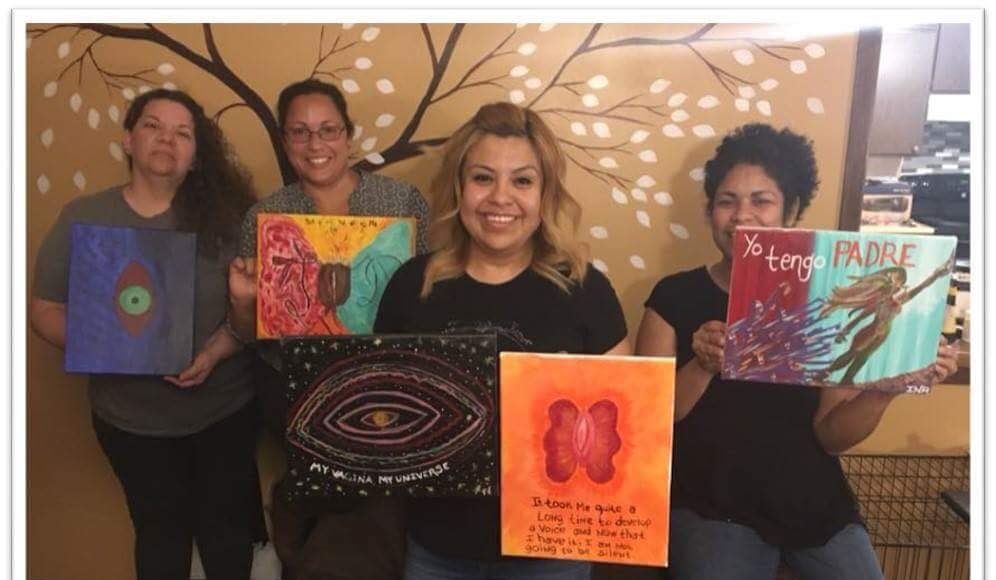Silence often hides domestic violence within the Latino community – 50 percent of Latinas who experience abuse never report it, according to UNIDOS Against Domestic Violence, who work to educate local police, health care providers, and schools to be culturally sensitive when approaching Latinas who do report the abuse. UNIDOS exists to empower the community to break the cycle of domestic violence, end sexual assault and promote healthy family systems.
This Friday, UNIDOS will be celebrating 22 years of service to victims and survivors of domestic and violence and sexual assault at its annual gala celebration at Monona Terrace Community and Convention Center.
“I think that the services that UNIDOS provides to the community are very valuable and I wish that we could do more and I hope that we can continue to grow with help from the community and expand our services to those we haven’t been able to help lead a life free of violence,” UNIDOS Executive Director Veronica Figueroa tells Madison365.
UNIDOS Against Domestic Violence, founded in 1996, is a statewide organization whose mission is to provide a bridge to a safe environment through needs assessment, direct support, referral, education, training and collaboration to break the cycle of domestic violence in Latino communities, one family at a time.
“Fear for victims of domestic violence is very real,” Figueroa says. “And the fear now is not just the one that you leave at home, but the one that you see outside trying to get resources and support in your community and having to deal with barriers that are very much prevalent in everyday lives. It’s very stressful and fearful for people. It’s important to have organizations like UNIDOS helping to navigate those systems and allowing people the space to talk about their situation, find resources, and collaborate with others in our community. To bring a team together to help survivors and victims of domestic violence has a huge impact.”
Those success stories will be told and celebrated as UNIDOS celebrates their 22nd anniversary with a big gala event titled “Honoring Their Journey.”
“This year our event is all about survivors and their journey so we have taken the time to really honor people’s journey – those who have been affected by violence, those who have survived violence, and the people that we serve,” Figueroa says. “That’s what we’ll be focusing our attention this year.
“We’ll also be focusing on what’s happening across the country with victims fleeing to this country and ending up locked up or their children being removed from their parents,” she adds. “That will be the focus of our event: bringing the light back into the social justice issues of violence in the community and also violence against women across the globe.”

The masters of ceremony for the event will be Fernando Cano Ospina, Diversity Services Coordinator at Mendota Mental Health Institute and former board member of UNIDOS and Shiva Bidar, Chief Diversity Officer at UW Health, a City of Madison alder and Co-Chair of the Latino Health Council.

The 22nd Annual Gala will have a social hour that starts at 6 p.m. followed by dinner at 7 p.m. and the program at 7:30 p.m. There will also be the annual “Dancing in Her Shoes” competition where men dance in high heels for prizes and acclaim. The winner gets a trophy.
“That’s always a really fun part of the event,” Figueroa says. “We also will have a Silent Auction, that people can participate in online if they can’t make the event, that has all kinds of great prizes including a hotel stay at the Marriott, Supreme Health and Fitness packages, beauty salon gift certificates, paintings, and more.”

One in three Latinas has experienced domestic violence. The fear of getting deported, having their children taken away, or facing more violence are all strong barriers for immigrant Latina women to not report domestic violence and sexual assault and many suffer all alone and in silence. UNIDOS serves mostly Latino clients, but Figueroa emphasizes that they serve many different communities, too.
“At UNIDOS we not only deal with victims of domestic violence from the Latino community, but we also deal with victims of domestic violence from Africa and the Muslim world and other refugee communities in town,” she says. “It’s not just Latinos. We have to be ready as a community to come together and support so many victims with so many backgrounds and so many different historical traumas in their life from both their old country and here in the United States.
“It’s so important to have a person that will listen to you without judgment and really work alongside you to really find those resources that you need to be safe,” she adds.




























